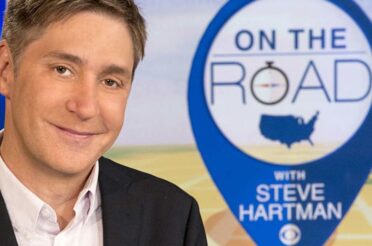By David Freeze
Runners everywhere have used caffeine to their advantage for years. I was one of them. Through the 1980s and ’90s, I raced nearly every weekend, spent time doing 75-100-mile weeks and knew I had found my best sport. The quest to be good drove a lot of my competitors to extreme means to place high in the best races, with rumors including performance enhancing drugs surfacing. Racing was serious business then, with a devoted group of focused athletes often driving hundreds of miles to find a race. It was a different time!
Today, runners seldom put in the work that we did then. And if they do it for a while, the sustained effort often doesn’t last. With a few possible exceptions, the most competitive races are past us. I sometimes felt like a NASCAR driver going from track to track racing the best.
I can’t drink coffee though friends have often tried to get me to. But during this racing period, I loved Mountain Dew and an occasional Diet Coke. In the beginning, I didn’t know why but I soon found out that either gave me a certain boost on race day. On the drive to just about any race, I started with a 2-liter bottle of diet Mountain Dew, mixed half and half with water, and one of my favorite snacks. My goal was to arrive at the race well-hydrated and with a caffeine buzz. This mixture worked for some amazing race times.
But how does caffeine enhance performance? The International Society of Sports Nutrition says caffeine increases calcium availability, which helps your muscles contract more forcefully and delays muscle fatigue. It also increases exercise metabolism and the availability of glucose and glycogen, which will allow you to run longer without having to slow down. Most importantly, caffeine stimulates your central nervous system (CNS), which has a number of effects on your body, including pain suppression.
Some studies have also shown that caffeine may modulate the release of dopamine into your bloodstream as well, which can impact alertness, pain, motivation and effort. The group’s findings also support a certain placebo effect, meaning that your mind expects to run well and you do.
I watched some of the best racers for years drink a cup or two of coffee within the hour before a race. In fact, there is an old photo of a pair of running shoes with a Styrofoam coffee cup in each shoe, both items supposedly ready to go to work.
There are many ways to get caffeine today besides drinking coffee or soft drinks. Currently, energy gels, shots and drinks, plus mouth rinses, chewing gum and pills all can provide the caffeine boost.
What are the side effects and how much is too much? The Olympics and the NCAA both banned caffeine in excessive levels but that level is almost impossible to reach without excessive pill use. Studies say that past a certain level, any kind of performance enhancement levels off and likely will even decrease. Turns out that the two regular cups of coffee are about right for the average individual, but not for all.
Coffee and energy drinkers sometimes drink too much caffeine, and where that tipping point is depends largely on the individual. Negative side effects include tachycardia, heart palpitations and anxiety, and the ISSN paper highlights that 50% of elite athletes face mental health problems at some point in their careers. High levels of caffeine consumption could potentially make the problem worse.
Caffeine’s impact on sleep is perhaps the most significant negative side effect of the drug when it comes to physical performance. Some athletes’ sleep is less affected by caffeine than others’, and the paper explains that this has more to do with genetics than anything. My own feeling is that sleep and hydration are the most important performance factors and must be done right, so weigh the above information with your own judgement.
The Will Run for Food 5K at Centenary Methodist is just ahead on Feb. 27. This and other upcoming events, including the spring Beginning Runners Class, are listed at www.salisburyrowanrunners.org.







